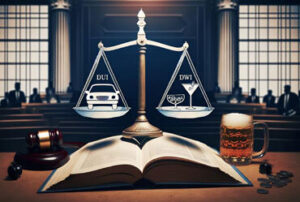 The crime of drunk driving is also legalized as ‘driving under influence’, abbreviated as ‘DUI’ and ‘driving while intoxicated’, abbreviated as ‘DWI’. In some states, the crime may be known as “operating while intoxicated, or OWI, or “operating under the influence,” or OUI. The names vary according to how state laws refer to or define the crime. Whatever the name, the state laws all have a common aim of punishing those who drive while under the influence of alcohol or illegal drugs. A drunk driving conviction carries with it serious and long-lasting consequences: or imprisonment for some time, an immense fine and or suspension or cancellation of the license to drive a car, A person who is charged with the offense of drunk driving should not wait to consult a lawyer who specializes in defending such cases.
The crime of drunk driving is also legalized as ‘driving under influence’, abbreviated as ‘DUI’ and ‘driving while intoxicated’, abbreviated as ‘DWI’. In some states, the crime may be known as “operating while intoxicated, or OWI, or “operating under the influence,” or OUI. The names vary according to how state laws refer to or define the crime. Whatever the name, the state laws all have a common aim of punishing those who drive while under the influence of alcohol or illegal drugs. A drunk driving conviction carries with it serious and long-lasting consequences: or imprisonment for some time, an immense fine and or suspension or cancellation of the license to drive a car, A person who is charged with the offense of drunk driving should not wait to consult a lawyer who specializes in defending such cases.
Drunk Driving: Some of the charges that are part of the offense include;
It does not matter whether the name of the crime is DUI, DWI, OUI or OWI, the first component of the crime is “driving” or “operation” of a motor vehicle. The words are meant to refer to the level of control a person has over the motor vehicle. In many states, operation or driving does not mean the vehicle has to be moving or even the engine running. The person found sitting behind the steering Although the term ‘vehicle’ is broader than ‘motor vehicle’. Normally, a “vehicle” is considered as anything that is capable of moving people or cargos from one point to another. A motor vehicle is something that is operate by engine, it includes cars, trucks, even motorboats. There is distinction between inoperable vehicles & immobile vehicles- capable of moving but not moving at the time. That’s why you need a drunk driving attorney to understand your certain case with the keen observations. The other factor is the location of the offense, at early times, drunk driving laws often included limited phrases, such as “on the public highways of the state” but modern laws only require the proof that the offense took place within the boundaries of the state.
Drunk Driving Penalties
The penalties for drunk driving have been an increase and are way much stronger than they used to be in the past 20years. First-time offenders can be put behind the bar or fined but normally for first-time offenders, something other than imprisonment may be offered to them in exchange for a guilty plea. These individuals are normally taken through strict sentencing with large amounts paid as fines and the offender is normally jailed, the jail term might not be suspended or dismissed by the court. Evidently, state administrative regulations demand suspension or revocation of a defendant’s license, aside from a criminal sanction. Defendants have sometimes sought to come up with the offensive assertion that this administrative suspension constitutes ‘double jeopardy’ prohibited by the U. S. Constitution, but none of such arguments have stood any chance.
Conclusion
A drunk driving charge is disturbance on criminal law that attracts serious charges. Possible examples include moving to work, shopping for food, and delivering other family members for lessons, medical purposes, or school among other things which most of us take for granted given the ability to drive a car. A person who is charged with drunk driving mostly will lose his or her driving license either for some time or permanently and also can expect worst outcome such as a fine or imprisonment. Whether you are facing a first time or multiple drunk driving charges, seek help from a good DUI defense lawyer as soon as possible. You have to make sure that you get the best legal assistance possible because you cannot go through the legal process without it.
